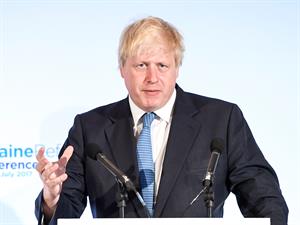
PUMPA - SMART LEARNING
எங்கள் ஆசிரியர்களுடன் 1-ஆன்-1 ஆலோசனை நேரத்தைப் பெறுங்கள். டாப்பர் ஆவதற்கு நாங்கள் பயிற்சி அளிப்போம்
Book Free DemoRead the text and answer the questions below.

The Prime Minister of the United Kingdom.
The Prime Minister of the United Kingdom of Great Britain and Northern Ireland is the political leader of the United Kingdom and the Head of Her Majesty's Government. The Prime Minister and Cabinet (consisting of all the most senior ministers, who are government department heads) are collectively accountable for their policies and actions to the Sovereign, to Parliament, to their political party, and ultimately to the electorate.
As the "Head of Her Majesty's Government", the modern Prime Minister is the highest political authority in the United Kingdom: he leads a major political party, generally commands a majority in the House of Commons (the lower house of the Legislature), and is the leader of the Cabinet (the Executive). As such, the incumbent wields both legislative and executive powers. In the House of Commons, the Prime Minister guides the law-making process with the goal of enacting the legislative agenda of the political party he leads. In his executive capacity, the Prime Minister appoints (and may dismiss) all other cabinet members and ministers, and co-ordinates the policies and activities of all government departments, and the staff of the Civil Service. The Prime Minister holds power over the deployment and disposition of British forces, and the declaration of war. He acts as the public "face" and "voice" of Her Majesty's Government, both at home and abroad. Solely upon the advice of the Prime Minister, the Sovereign exercises many of her statutory and prerogative powers: they include the dissolution of Parliament; high judicial, political, official and Church of England ecclesiastical appointments; and the conferral of peerages, knighthoods, decorations and other honours.
The Prime Minister's current salary is £132,923 (ministerial entitlement), in addition to a salary of £64,766 as a Member of Parliament. Number Ten Downing Street is the official residence of the Prime Minister; the incumbent also has use of a country home, Chequers. Upon retirement or defeat, most Prime Ministers (although not all) are awarded a peerage and a seat in the House of Lords if they wish it.
Choose the right variant.
1. The Prime Minister holds power over the British forces.
2. When a Prime Minister leaves office, he must become a member of the House of Lords.
3. The Prime Minister is the Executive of the Cabinet.
Reference:
paparazzza / Shutterstock.com